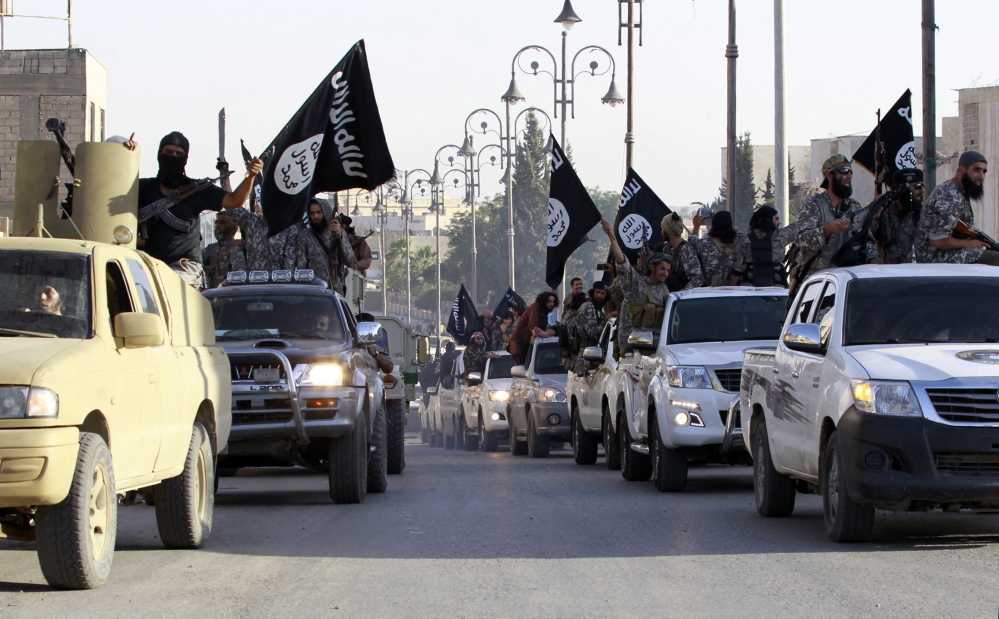WASHINGTON — After billions of dollars spent and more than 10,000 extremist fighters killed, the Islamic State group is fundamentally no weaker than it was when the U.S.-led bombing campaign began a year ago, American intelligence agencies have concluded.
The military campaign has prevented Iraq’s collapse and put the Islamic State under increasing pressure in northern Syria, particularly squeezing its self-proclaimed capital in Raqqa. But intelligence analysts see the overall situation as a strategic stalemate: The Islamic State remains a well-funded extremist army able to replenish its ranks with foreign jihadis as quickly as the U.S. can eliminate them. Meanwhile, the group has expanded to other countries, including Libya, Egypt’s Sinai Peninsula and Afghanistan.
The assessments by the CIA, the Defense Intelligence Agency and others appear to contradict the optimistic line taken by the Obama administration’s special envoy, retired Gen. John Allen, who told a forum in Aspen, Colorado, last week that “ISIS is losing” in Iraq and Syria. The intelligence was described by officials who would not be named because they were not authorized to discuss it publicly.
‘NO MEANINGFUL DEGRADATION’
“We’ve seen no meaningful degradation in their numbers,” a defense official said, citing intelligence estimates that put the group’s total strength at between 20,000 and 30,000, the same estimate as last August when the airstrikes began.
The Islamic State’s staying power also raises questions about the administration’s approach to the threat that the group poses to the U.S. and its allies. Although officials do not believe it is planning complex attacks on the West from its territory, the group’s call to Western Muslims to kill at home has become a serious problem, FBI Director James Comey and other officials say.
Yet under the Obama administration’s campaign of bombing and training, which prohibits American troops from accompanying fighters into combat or directing air strikes from the ground, it could take a decade to drive the Islamic State from its safe havens, analysts say. The administration is adamant that it will commit no U.S. ground troops to the fight despite calls from some in Congress to do so.
SOME INROADS
The U.S.-led coalition and its Syrian and Kurdish allies on the ground have made some inroads. The Islamic State has lost 9.4 percent of its territory in the first six months of 2015, according to an analysis by the conflict monitoring group IHS. And the military campaign has arrested the sense of momentum and inevitability created by the group’s stunning advances last year.
Copy the Story LinkSend questions/comments to the editors.



Success. Please wait for the page to reload. If the page does not reload within 5 seconds, please refresh the page.
Enter your email and password to access comments.
Hi, to comment on stories you must . This profile is in addition to your subscription and website login.
Already have a commenting profile? .
Invalid username/password.
Please check your email to confirm and complete your registration.
Only subscribers are eligible to post comments. Please subscribe or login first for digital access. Here’s why.
Use the form below to reset your password. When you've submitted your account email, we will send an email with a reset code.